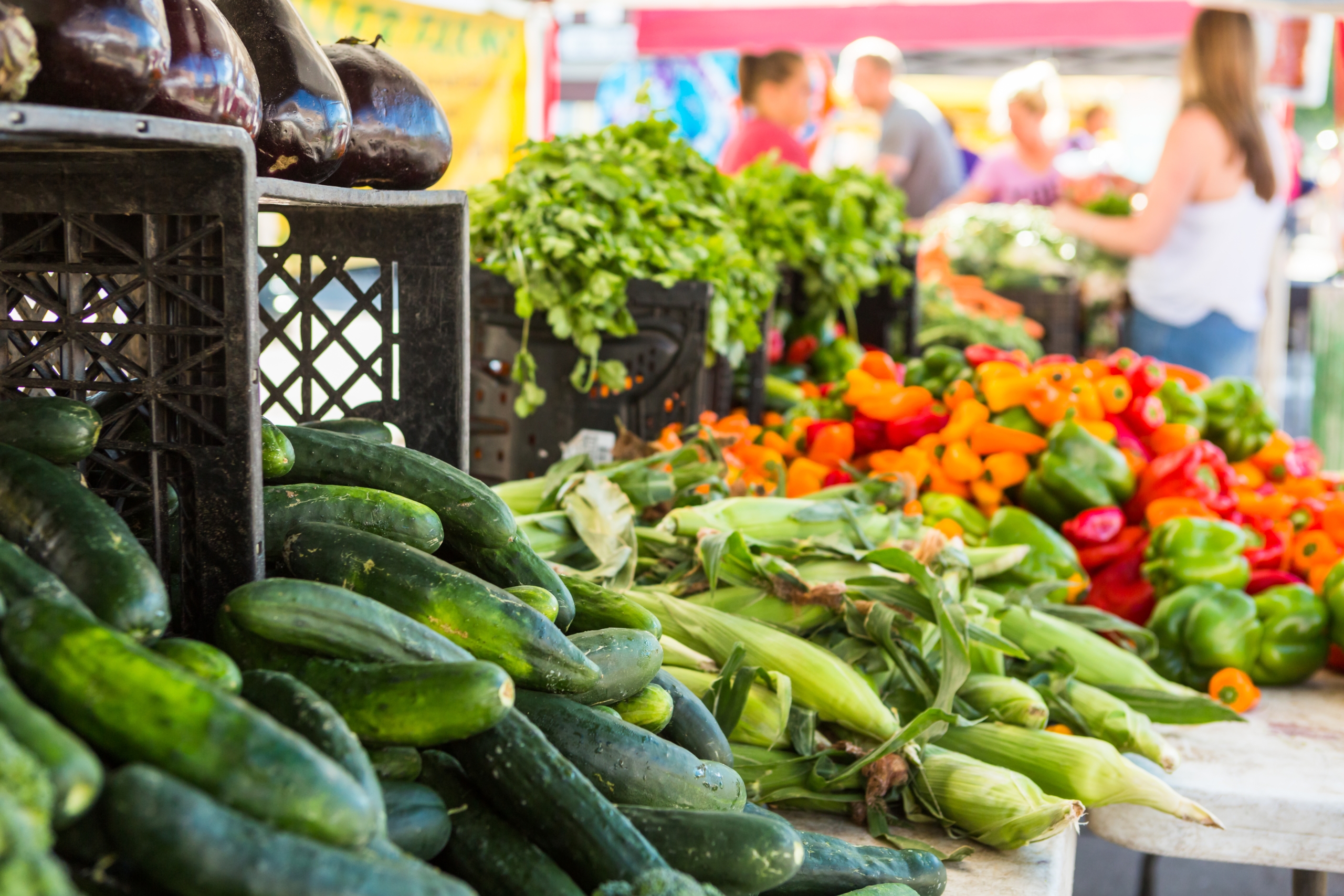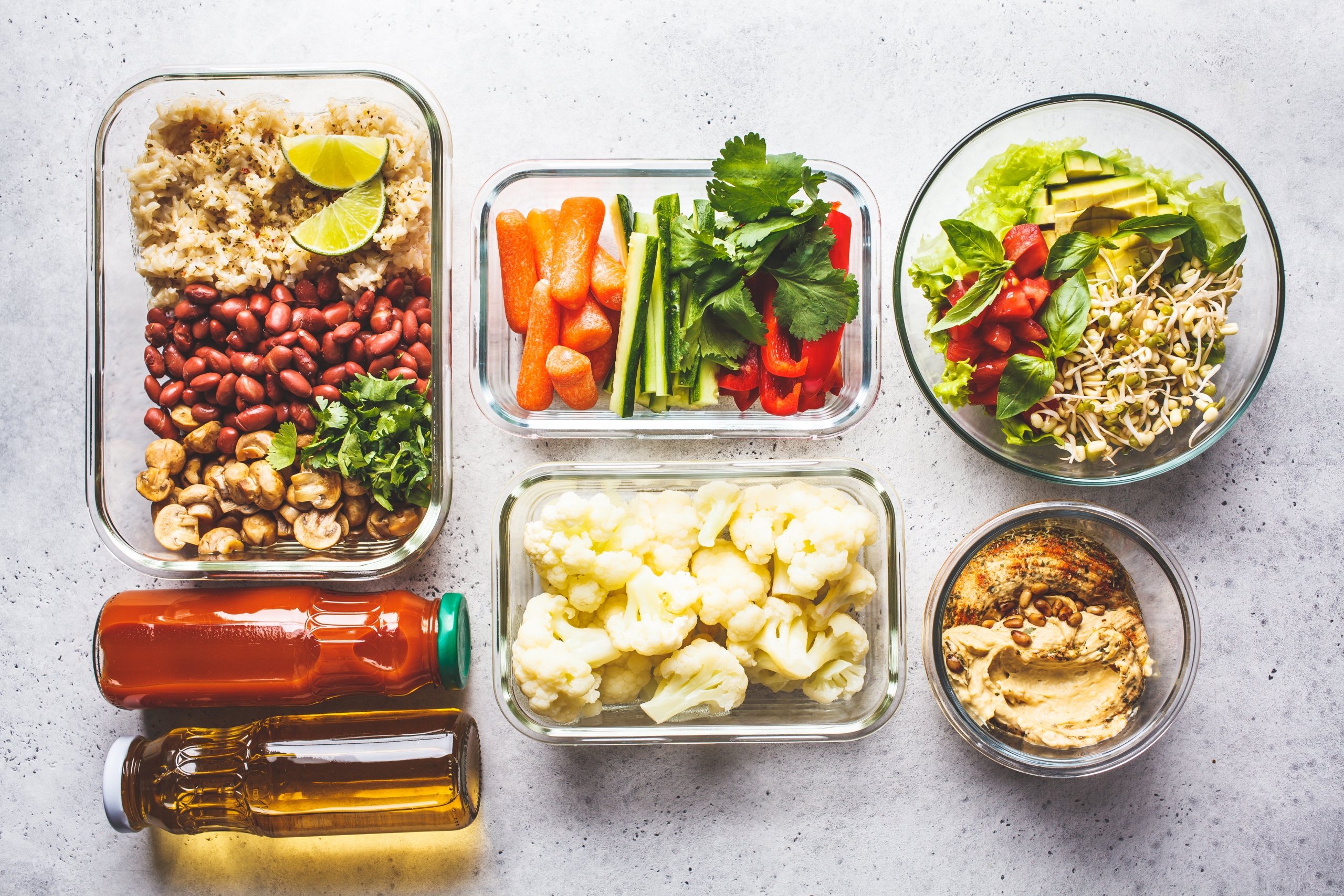More than just fuel for our bodies, food is a powerful connector.
Food connects us to our cultures, families and communities. Sharing a meal is an experience that can provide us with memories and traditions – all of which can shape our unique relationship to food.
And, the foods we choose can have a profound impact on our health and wellbeing.
This National Nutrition Month, let’s explore how to cultivate a more mindful and connected approach to what’s on our plates.

Sourcing Healthy Ingredients: A Foundation for Connection
The journey to a healthy meal begins long before it reaches the table. By sourcing quality ingredients and understanding where our food comes from, we can help transform our eating habits.
Here are some other ways you can source out healthier ingredients for your meals:
- Shop local. When possible, seek out local farmers’ markets or community-supported agriculture (CSA) programs. These options not only provide fresh, seasonal produce but also support local economies and reduce the environmental impact of long-distance transportation.
- Start a garden. Consider the benefits of growing your own food, even if it’s just a small herb garden on your windowsill or porch.
- Read food labels. Pay attention to ingredient lists, serving sizes and nutritional information. Choose whole foods whenever possible, and be mindful of added sugars, sodium and unhealthy fats.
- Research local resources. Learn about community resources such as SNAP, WIC and local food banks.
By making informed choices about the ingredients we use, we can create meals that are both nourishing and meaningful.

The Importance of Meal Prep
In today’s fast-paced world, preparing healthy meals can seem like a daunting task. That’s where meal prep comes in. Planning and preparing meals in advance can save time, save money, avoid impulse purchases, reduce stress and promote healthier eating habits. Meal prepping allows you to control the ingredients and portion sizes of your meals, ensuring that you’re getting the nutrients you need.
And never grocery shop while hungry!
How to Meal Prep: A Practical Guide
Start by planning your meals for the week. Consider your dietary needs, preferences and schedule. Create a shopping list based on your meal plan. Set aside time each week to prepare your meals. This could involve prepping produce, grains and proteins as well as portioning out meals into containers.

Don’t feel pressured to prepare every meal for the week. Even prepping a few key components, like cooked grains or roasted vegetables, can make a huge difference. Here are some additional meal-prep tips to consider:
- Batch cooking. Explore batch cooking techniques, where you prepare large quantities of certain foods and use them in different meals throughout the week.
- Variety is the spice of meal prepping! Incorporate variety into your meal prep. Experiment with different flavors, cuisines and ingredients to keep your meals interesting and enjoyable.
- Use high-quality containers. Make sure your food storage containers are airtight and leak-proof. This will help keep your food fresh and prevent spills. You can purchase new containers or repurpose glass food containers to save money.
By mastering the art of meal prep, you can create a seamless and stress-free approach to healthy eating, freeing up time to connect with others over shared meals.
Connecting with a Nutrition Expert: Personalized Guidance
While the internet and social media are filled with nutrition information and “expert tips,” it can also be overwhelming – and sometimes misleading, or simply not factual. It’s important to seek out personalized guidance from a qualified professional. Registered Dietitian Nutritionists (RDNs) are food and nutrition experts who can provide evidence-based advice tailored to your specific needs.
Here’s how to get started and what to expect:
- Ask your doctor for a referral to an RDN. They can help you develop a personalized meal plan, address any dietary concerns and provide ongoing support. Find an RDN who specializes in your unique needs – whether you’re managing a chronic condition, seeking to lose weight or simply looking to improve your overall health, an RDN can provide the expertise and guidance you need.
- Personalized meal plans. Receiving personalized nutrition information can empower you to make informed food choices and achieve your health goals. An RDN can help you navigate the complexities of nutrition, dispel common myths and create a sustainable eating plan that fits your lifestyle. They can also help you develop a deeper understanding of your relationship with food, fostering a more mindful and connected approach to eating.
This National Nutrition Month, let’s embrace the theme “Food Connects Us” by making conscious choices about the food we eat and the way we prepare it. By prioritizing healthy eating habits and seeking expert guidance, we can cultivate a stronger connection with our food to improve the connection we have with our bodies, our families and even our communities.
Authors
Erin McCarthy, RDN, CDN
Michelle Hartman, RD, CDN

